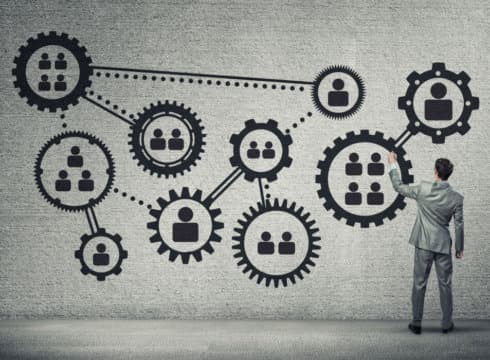In Today's World, The Way Teams And Talent Are Managed Would Become A Key Differentiator For Organisations
Inc42 Daily Brief
Stay Ahead With Daily News & Analysis on India’s Tech & Startup Economy
The world of work has been changing dramatically over the last few years primarily because of access to and rapid changes in technology. Entrepreneurs, the world over, are experimenting with new business ideas & models and are striving towards building successful businesses.
The way work is done has also changed significantly. Today’s workforce is seeking meaningful experiences, flexibility, and freedom to choose what, how and when they work. So, work happens at any time of the day, quite often virtually and in collaborative teams.
In such a dynamic world of work, the way teams and talent are managed would become a key differentiator for organisations to successfully navigate through the most challenging situations, innovate and build successful enterprises.
This begins with examining our beliefs about “people”.
Do we really think of people as a key differentiating asset or do we think of them as a cost or a resource that is required to deliver the business aspirations?
It is important to examine this, as beliefs drive actions.
My belief and experience have been that people are indeed an organisation’s greatest strength and this has influenced the way I have managed people and teams. My advice is that one should hire people in their teams who are better than them and can add differentiated value to the team. Outlined below are some imperatives to manage teams effectively.
Know Your People
It is important to truly know the people you work with. You need to understand the critical experiences that have shaped them, their values and beliefs, likes and dislikes, talents, aspirations and the life stage they are going through.
You need to make it clear to them that you are interested in them as individuals and organisation members and genuinely care about them. At an interpersonal level, this would mean listening to them, showing respect, being considerate & fair, empathizing them, supporting them and maintaining their dignity in difficult situations.
Trust And Empower Your People
People need to be trusted in order to get the best out of them. Mutual respect, transparency & openness are the key ingredients to building trusting relationships.
Empowerment is also critical to harnessing employee potential. The elements of empowerment, freedom, and challenge provide employees with intrinsic rewards, encourage them to make decisions on their own and see the success that follows. Empowered individuals take complete ownership. This ownership helps them nurture and drive the business as their own, challenging themselves every step of the way, and stretching themselves beyond their own limits.
So roles should be designed in a manner that gives enough room to a person to carve out expanded role boundaries, look beyond their narrow role to a much larger organizational role of being a custodian of the organization’s interests.
Provide Clarity
Employees’ works best when there is clarity. This could be clarity of purpose, deliverables, expectations, acceptable and not acceptable standards of behavior, etc. When there is clarity, there is a direction which facilitates in taking action. Transparency and openness in communication is essential in bringing about clarity, reducing ambiguity, uncertainty, and confusion.
Involve Your People To Gain Their Commitment
Personal involvement build commitment and results from committed people are durable and self-sustaining. A participative approach induces synergy, cuts communication barriers & builds shared understanding, trust, and commitment. Truly involved people have a high sense of ownership and can achieve almost anything.
Leverage People’s Strengths
Employees associate their success with their own abilities which motivates them to continue to strive for higher levels of productivity in future tasks. There is enough proven research in the world that you can achieve exceptional results when you leverage someone’s strengths. So identifying the true talent of individuals, staffing teams with complementary talents and providing them opportunities to harness it to its full potential is a great way to create and lead high-performance teams.
It is also essential to build your talents’ capability for their career growth while building the depth of talent for the organisation. Apart from formal training stretched assignments, job rotation, cross-functional projects, coaching and mentoring can also be leveraged to groom talent for future roles.
Appreciate Your People Genuinely
Every human being has a psychological hunger for praise. A job well done must be acknowledged. Recognition and public acknowledgment help people value their work and give them a sense of satisfaction and meaningfulness. It also signifies that someone notices and cares. It is, however, important that the recognition should be genuine to be valued by the recipient. The recognition can be a simple thank you, a public appreciation, an award or a reward. Spontaneous and genuine recognition goes a long way in building trust, commitment, and confidence of your team.
Managing a team is a complex and challenging responsibility. Each person is different and the role of the leader is to bring the different people together in a manner congenially to create synergy and deliver results. The leader needs to know & acknowledge the differences and adapt own style to motivate and engage the different people. The common and overriding imperative when managing teams is for the leader to have integrity, be fair, caring, supporting, empowering and genuinely there for the team.
{{#name}}{{name}}{{/name}}{{^name}}-{{/name}}
{{#description}}{{description}}...{{/description}}{{^description}}-{{/description}}
Note: We at Inc42 take our ethics very seriously. More information about it can be found here.


